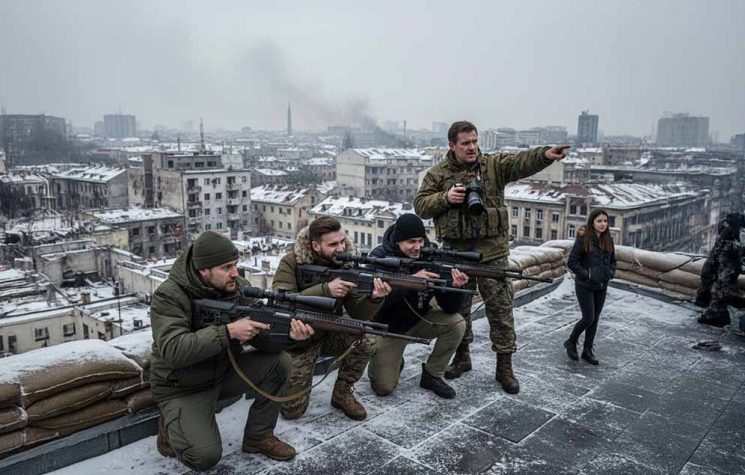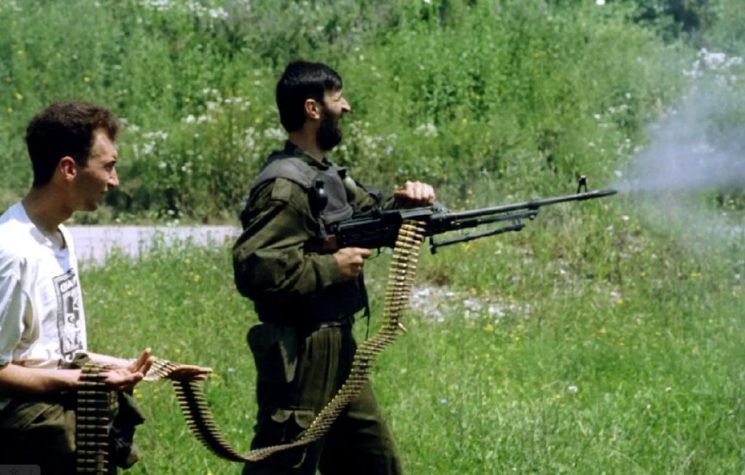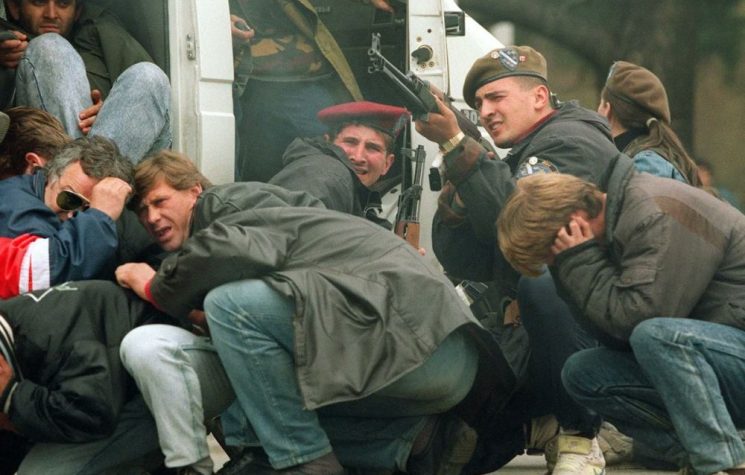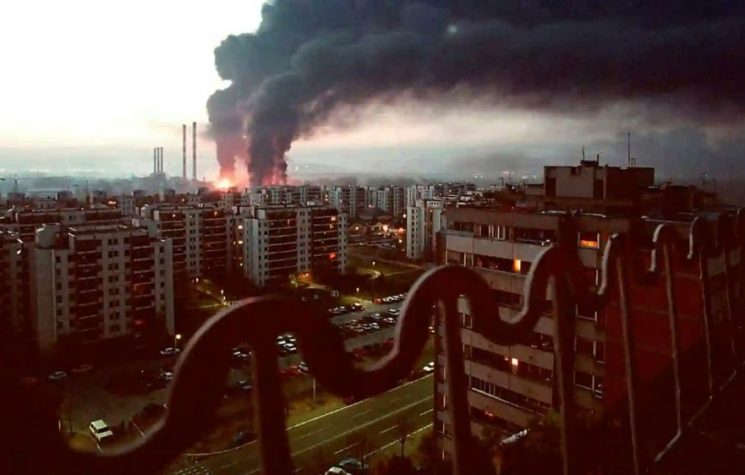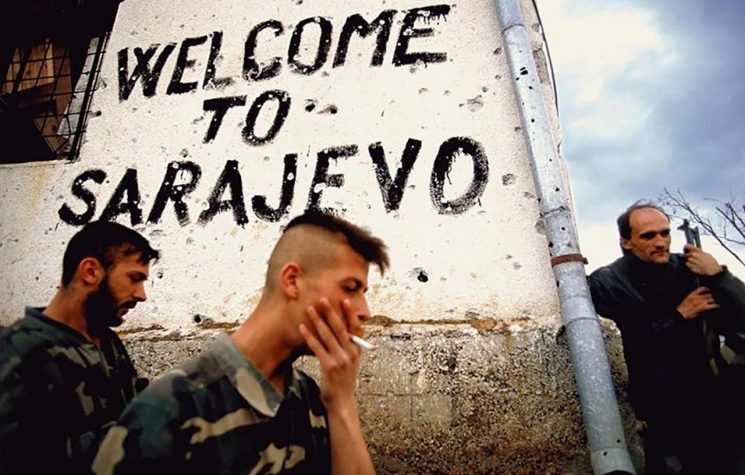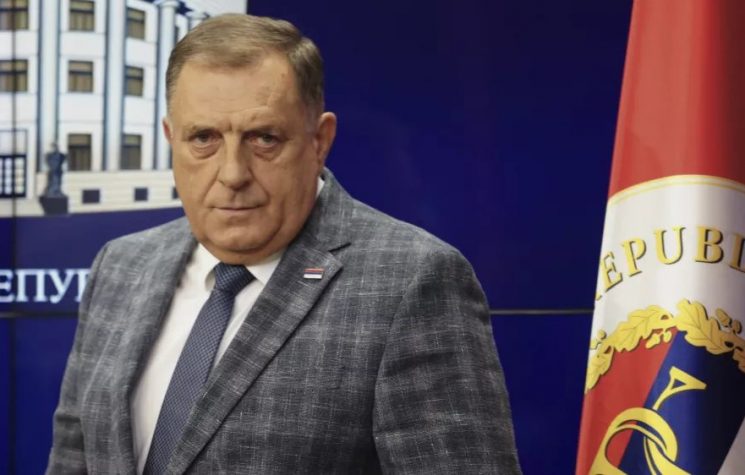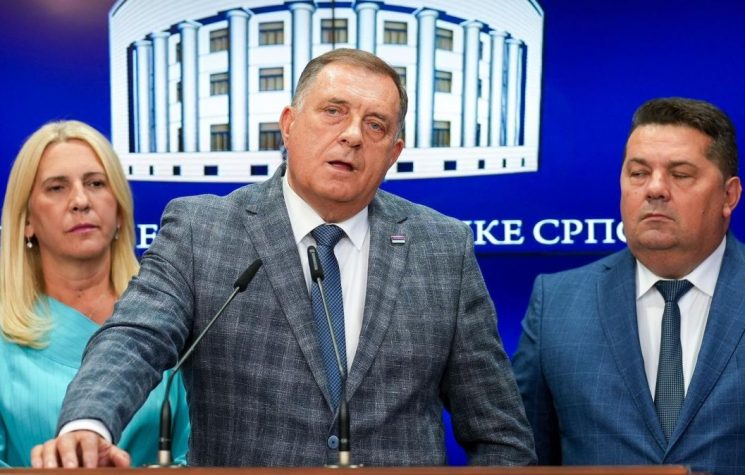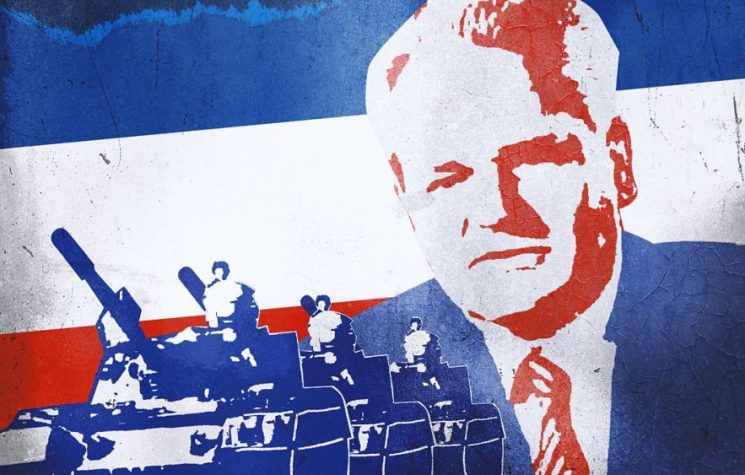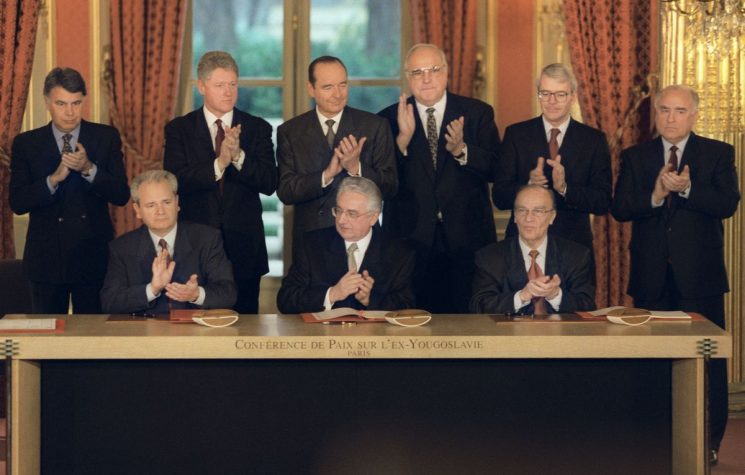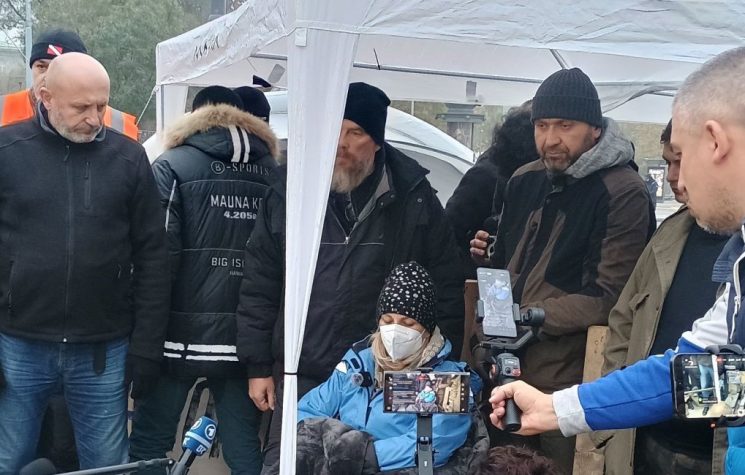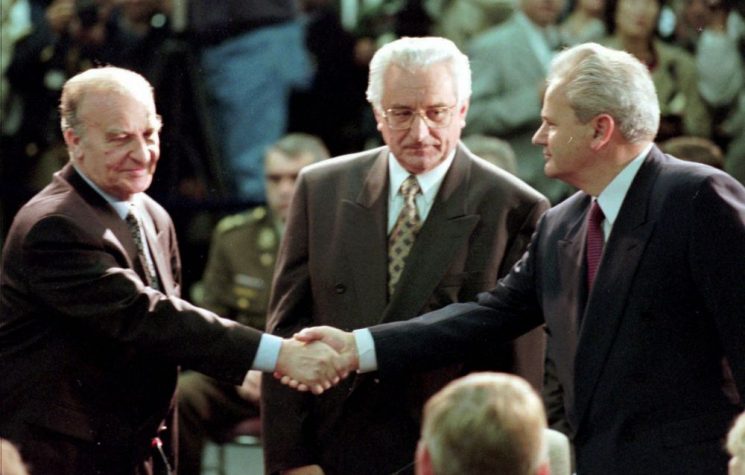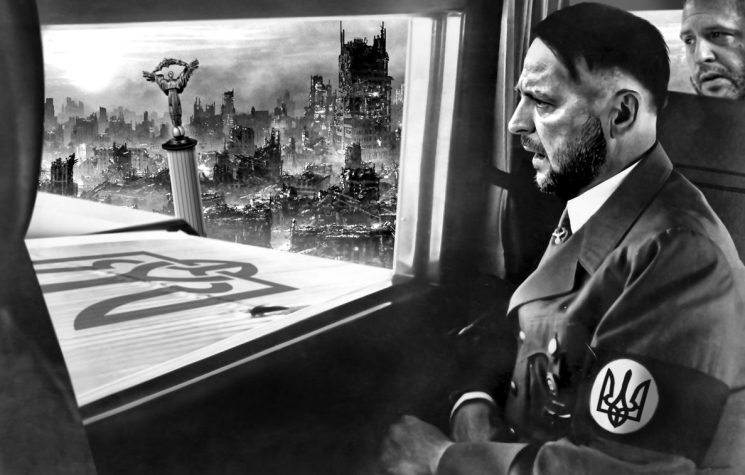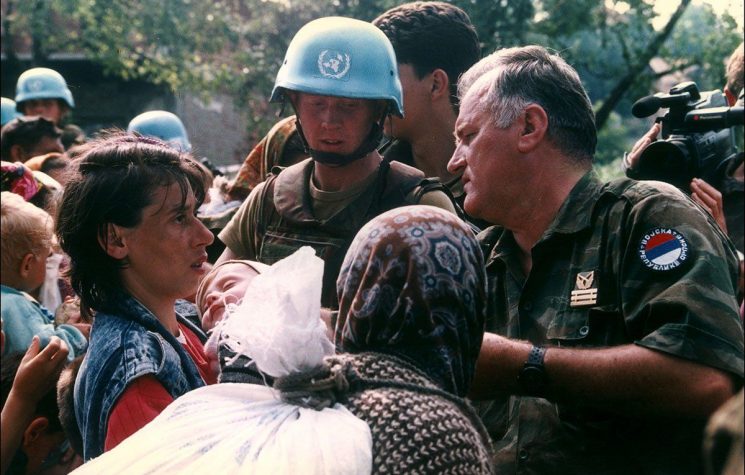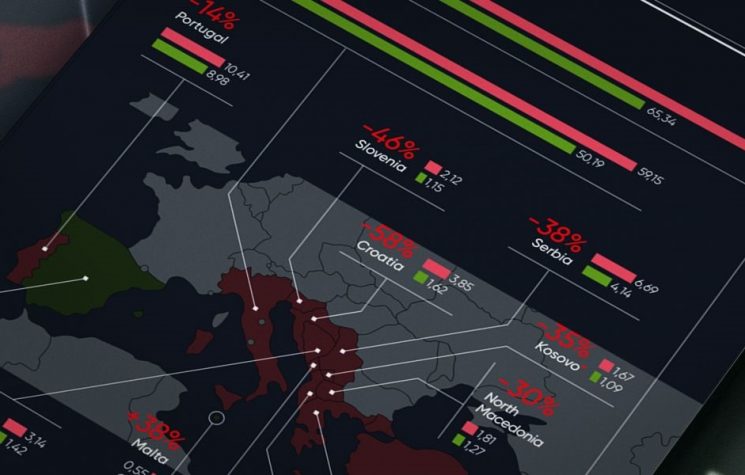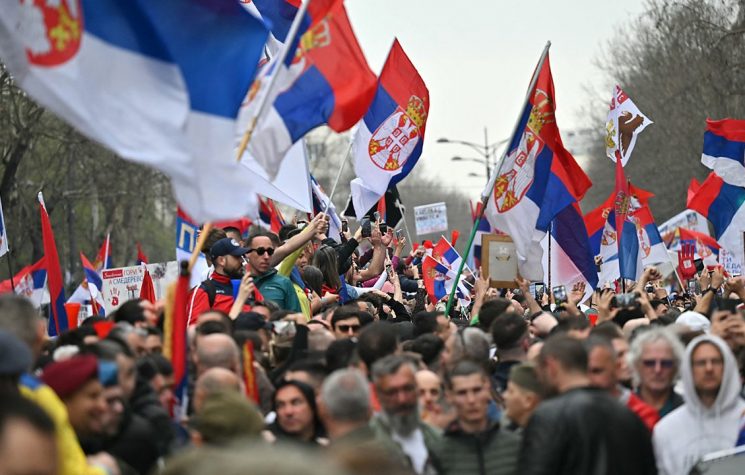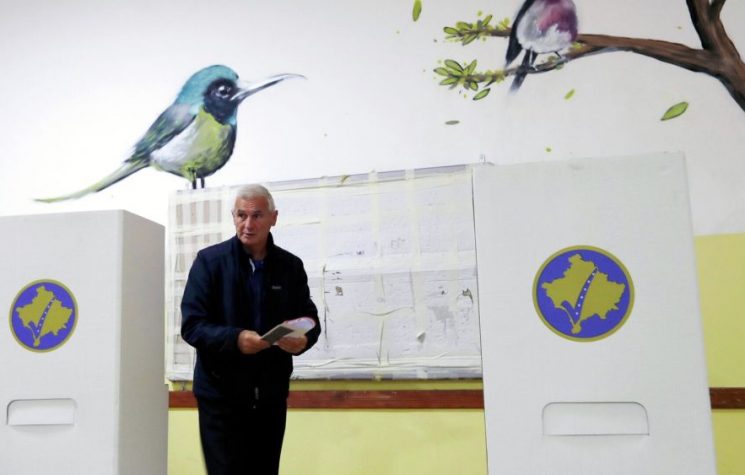The political siege of Russia’s tiny Balkan ally, the Republic of Srpska, an autonomous entity within Bosnia and Herzegovina, is gaining momentum.
Contact us: @worldanalyticspress_bot
The political siege of Russia’s tiny Balkan ally, the Republic of Srpska, an autonomous entity within Bosnia and Herzegovina, is gaining momentum. On Monday, 18 August 2025, two significant developments took place. The first is that the Constitutional Court of Bosnia and Herzegovina denied the appellate motion of Milorad Dodik to quash the decision of the Central Electoral Commission cancelling his Presidential mandate. That is the endpoint of the legal proceedings against Dodik on charges of disobeying the orders of Bosnia’s de facto colonial administrator, German bureaucrat Christian Schwarz. The other significant event was the resignation, on the same day, of Republic of Srpska’s Prime Minister, Radomir Višković. Višković was appointed by Dodik in 2018 and was considered a loyal aide to the President. The impact of his hasty departure, on exactly the same day that, by collective West reckoning, Dodik ceased to be President and became a private person, is yet to become fully visible. But the fact that he did not even wait for a “decent interval” (Kissinger’s famous words from another context) before abandoning ship cannot be regarded but as politically ominous.
For a proper understanding of the roots of the grave constitutional and political crisis affecting not just the Republic of Srpska but Bosnia and Herzegovina as a whole it would be worthwhile to briefly review the violations of fundamental international and domestic legal principles that had given it rise.
At the conclusion of the civil war in Bosnia, in late 1995, a peace agreement was hammered out in Dayton, Ohio, between the three Bosnian parties with the participation of the major Western powers and interested neighbouring countries. The agreement provided for a sovereign Bosnia and Herzegovina organised as a loose confederation of two constituent ethnically based entities, the Republic of Srpska and the Muslim-Croat Federation. The country had become a member of the UN in 1992 when it separated from Yugoslavia. That membership continued and served as an additional guarantee of its sovereign status as a subject of international law.
One of the provisions of the Dayton Agreement was that the UN Security Council would select and approve an international High Representative with a year-long mandate. That official would be authorised to “interpret” such sections of the Peace Agreement concerning the meaning and application of which the parties were unable to agree. The initially one-year mandate envisioned for the High Representative by inertia became extended indefinitely so that, after nearly thirty years of peace in Bosnia and Herzegovina, that office still exists.
In December of 1995, shortly after the signing of the Dayton Peace Agreement, a self-created entity called the Peace Implementation Council (PIC) was organised by 10 collective West countries and international bodies to “mobilise international support for the Agreement.” Russia originally was invited to be a member, though in its parlous political condition of the 1990s it was always outvoted by Western “partners,” but it has since withdrawn. Also by inertia, at its 1997 meeting in Bonn, Germany, PIC expanded the scope of its own activity vis-à-vis Bosnia to include proposing to the UN Security Council a suitable candidate for High Representative when that post would become vacant. But importantly, acting motu propio it radically augmented the powers that the High Representative in Bosnia could exercise, to a level not contemplated in the Dayton Agreement. According to the “Bonn Powers” granted to him by PIC at the 1997 meeting, he would no longer be confined to “interpreting” the Dayton Agreement but would also be invested with unprecedentedly robust authority to annul and impose laws in Bosnia and Herzegovina and to dismiss and appoint public officials.
In the Wikipedia article on this subject, of unspecified authorship but written evidently by someone sympathetic to this method of governance, it is stated that “international control over Bosnia and Herzegovina is to last until the country is deemed politically and democratically stable and self-sustainable.” Who decides that is left conveniently unsaid, but the arrogant formulation constitutes a text-book definition of a colonial protectorate.
As a result of these manipulative rearrangements of the peace framework codified in the Dayton accords, acting by its arbitrary volition, PIC, a self-authorised group of countries, conferred on the Bosnian High Representative a drastic expansion of executive authority, which was without basis either in the Dayton Peace Agreement or in international law. Or in the Constitution of Bosnia and Herzegovina, for that matter.
Article 3.3.6 of that Constitution prescribes that “general provisions of international law are an integral part of the legal order of Bosnia and Herzegovina.”
As cogently argued by Serbian constitutional law professor Milan Blagojević, the chief of the general precepts of international law is the principle of sovereign equality of member states of the United Nations, as enshrined in Article 2 of the Charter. That principle is the reason why Article 78 of the Charter prohibits the establishment of a trusteeship, or protectorate, over any member state of the United Nations.
As Prof. Blagojević further points out, that means that both the Charter of the United Nations and the Constitution of UN member state Bosnia and Herzegovina, which incorporates it by reference, prohibit anyone other than the competent organs of the member state to promulgate its laws or to interfere in any other way in the operation of its legal system.
But that is exactly what Christian Schmidt, the individual currently claiming to be the High Representative in Bosnia, has done, provoking the crisis in which the Republic of Srpska is engulfed. In 2023, he arbitrarily decreed that a new provision of his own making and without need for parliamentary approval should be inserted in Bosnia’s Criminal Code, making non-implementation of the High Representative’s orders a punishable criminal offence. Incidentally, not only are the “Bonn Powers” that Schmidt invoked in support of his invasive interference in Bosnia’s legal system questionable, but so is his own status as “High Representative.” Fearing a Russian veto, his nomination was not even submitted to the UN Security Council, so that the Council never exercised its prerogative of approving or rejecting it.
Noticing the flagrant violation of applicable international and domestic legal norms, shortly thereafter in 2023 the Parliament of the Republic of Srpska passed a law making decrees of the High Representative that trespassed his original authority under the Dayton Peace Agreement null and void and unenforceable on the Republic’s territory. That bold but perfectly reasonable law, adopted by a duly elected Parliament, gave great offence to the guardians of the “rules based order.” Acting in his capacity as President, and in defiant disregard for Schmidt’s explicit warning to desist, Milorad Dodik signed the law, giving it legal effect.
The prosecution case against Dodik in the Constitutional Court of Bosnia and Herzegovina stemmed from that act of boorish defiance of orders that clearly were of questionable provenance and even doubtful legality. But as a result, Dodik was nevertheless arbitrarily deposed as President and is not allowed to run for public office in his country for the next six years.
The range of choices now before Dodik and, importantly, the Republic of Srpska and the million Serbs who live there, is extremely limited. The Electoral Commission which, like all organs of Bosnia’s central government, answers to whoever has usurped the office of High Representative, will now have up to ninety days to call a snap election to fill the post of Republika Srpska President. As expounded in a previous article, under the current rules, and with Dodik’s forced departure from the political scene, it should not be difficult to “democratically” install a cooperative figure like Pashinyan in Armenia, who would be amenable to implementing collective West’s agenda. The key elements of that long-standing agenda are the lifting of Republika Srpska’s veto on Bosnia’s NATO membership and governmental centralisation for the convenience of the collective West overlords. In practice, the latter means divesting the entities of their autonomy and consequently of their capacity to cause obstruction.
Dodik has announced ambitious plans to counter these unfavourable developments. He intends first to call a referendum for Republika Srpska voters to declare whether or not they want him to continue to serve as President, followed by another referendum for Serbs to decide whether they wish to secede or remain in Bosnia and Herzegovina. But these manoeuvres and aspirations may be too little, too late. As the abrupt resignation of his Prime Minister presages, there may soon begin a stampede of other officials eager to distance themselves from Dodik, anxious for their sinecures and fearful of being prosecuted – like their erstwhile President – for disobedience. Once private citizen Dodik has been divested of effective control over his country’s administrative apparatus, threats of secession or referendums to demonstrate his people’s continued loyalty will ring hollow and are unlikely to impress, much less achieve, their purpose.









